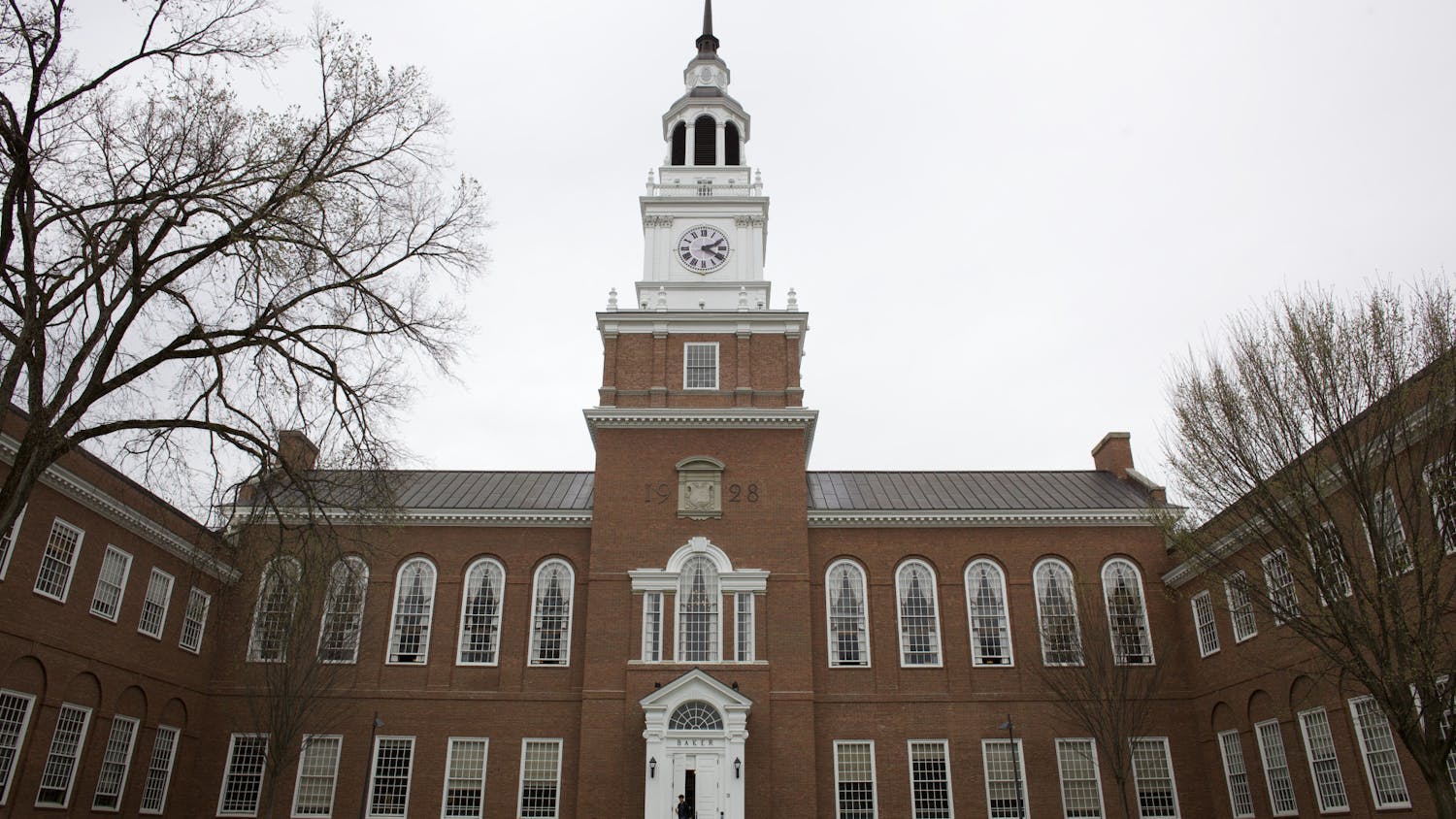The final set of “Campus Conversations” will take place today, concluding the Office of the President’s series of biweekly public talks with a discussion of global learning experiences at the College. Approximately 415 people have attended the talks since they began in February under the banner of “Moving Dartmouth Forward,” according to the office of public affairs, and the videotaped sessions have garnered a total of over 3,000 views.
Past presenters said they were pleased by the level of attendance at these talks, which were intended to encourage campus discussion of College President Phil Hanlon’s vision for the College, but some noted that at times, not all segments of the community were represented in the audience.
Previous topics included the D-Plan, housing, digital learning, professional development, faculty recruitment and retention, sexual assault and arts and innovation.
Each talk began with 10- to 20-minute introductions before the presenters took audience questions and comments. Presenters interviewed said they found the discussions productive and appreciated the opportunity to gather feedback on new initiatives.
Director of judicial affairs Leigh Remy, who presented on sexual assault at Dartmouth on April 22, said the talk capped a number of meetings that she and her co-presenters, Dean of the College Charlotte Johnson and General Counsel Bob Donin, had participated in on campus.
Remy said that the session, which took place a week after the community feedback period on the proposed sexual assault closed, was the last public forum to collect feedback on the proposal, adding that she was thankful that attendees and those who streamed the talk online pointed out concerns with the proposed revisions.
Several presenters observed lower attendance rates at evening sessions than at those that occurred in the afternoon.
Alan Cattier, director of academic and campus technology services, estimated that fewer than 10 people attended the digital learning evening session, while over 60 people attended the noon presentation.
“Honestly, both were in the range I was expecting, though I would say that we would have obviously welcomed more, particularly to the evening series,” Cattier said.
Co-presenter of the campus discussion on professional development Dan Parish ’89, director of the Dartmouth for Life Initiative, said he appreciated hearing from the alumni and staff who attended the talks but would have liked to connect with more students.
Remy said that although attendance at the session on sexual assault was not as high as the turnout at the annual symposium on sexual assault, hosted by the Student Presidential Committee on Sexual Assault, she did not think attendance could be used to judge the quality of a discussion or the level of engagement on the topic. Students, faculty, staff and alumni may have chosen not to attend because they had already participated in previous opportunities to engage on the issue, Remy said.
“From my perspective, even one person listening and commenting is worthwhile,” Remy said.
Presenters said that if asked, they would hold similar sessions again.
Cattier said that it was important to note that the sessions were part of a larger fabric of engagement across Dartmouth students, faculty and staff.
Lynn Higgins, associate dean of faculty for international and interdisciplinary studies, and Lindsay Whaley, associate provost for international initiatives will present the session on global learning today. The first session will take place at noon in the Hood Museum auditorium, and the second session will take place at 6:30 p.m. in the ground floor lounge of Fahey Hall.



